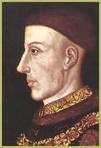Write! You Bloody Well Write.
Author Insights: What’s the worst sin a writer can commit?
L. J. Bonham: Not writing. I’ll share a friend’s saga. The other day, he asked my advice on how to improve his novel and attract a publisher. I’ve read his partial manuscript; it’s a tremendous story based on his wartime experiences. The guy is a true unsung hero, but he has one problem. He has yet to complete the first draft after toying with it for over twenty years. I was very blunt. I would help him work out the bugs, but I couldn’t do a thing until he had a complete book on his hands.
AI: What about editing as you go? You know, rereading your day’s work and fixing the problems then and there?
LJB: That is the deepest rabbit hole in literature. It is impossible to overstress this one simple fact: you must first have a book before you can edit a book. Ken Rand even suggested turning off the spell and grammar check functions so you aren’t distracted by the bright, squiggly lines. They tempt you into revising before your have anything worth revising. This is vital for first novels. The first draft is the crucible that will try your metal and forge the skills you need to go forward.
Get the plot, characters, and setting on paper (or in the RAM) first. Once you have a complete draft, you can go through it for style, typos, misspelling, and content. That is the time to grapple with polish and flow. As your writing matures, you will become more fluid. You will avoid basic errors and reduce the edit time.
Until you write a complete something you have nothing, and nothing is the stuff of dreams.
L. J. Bonham: Not writing. I’ll share a friend’s saga. The other day, he asked my advice on how to improve his novel and attract a publisher. I’ve read his partial manuscript; it’s a tremendous story based on his wartime experiences. The guy is a true unsung hero, but he has one problem. He has yet to complete the first draft after toying with it for over twenty years. I was very blunt. I would help him work out the bugs, but I couldn’t do a thing until he had a complete book on his hands.
AI: What about editing as you go? You know, rereading your day’s work and fixing the problems then and there?
LJB: That is the deepest rabbit hole in literature. It is impossible to overstress this one simple fact: you must first have a book before you can edit a book. Ken Rand even suggested turning off the spell and grammar check functions so you aren’t distracted by the bright, squiggly lines. They tempt you into revising before your have anything worth revising. This is vital for first novels. The first draft is the crucible that will try your metal and forge the skills you need to go forward.
Get the plot, characters, and setting on paper (or in the RAM) first. Once you have a complete draft, you can go through it for style, typos, misspelling, and content. That is the time to grapple with polish and flow. As your writing matures, you will become more fluid. You will avoid basic errors and reduce the edit time.
Until you write a complete something you have nothing, and nothing is the stuff of dreams.
Published on April 23, 2014 12:47
•
Tags:
authorship, editing, first-novels, get-published, improve-your-writing, ken-rand, rough-draft, writer-s-advice, writing
No comments have been added yet.
Author Insights with L. J. Bonham
Find out each week what makes author L. J. Bonham's books tick and be the first to hear about exciting offers and new books from L. J.
Find out each week what makes author L. J. Bonham's books tick and be the first to hear about exciting offers and new books from L. J.
...more
- L.J. Bonham's profile
- 3 followers



